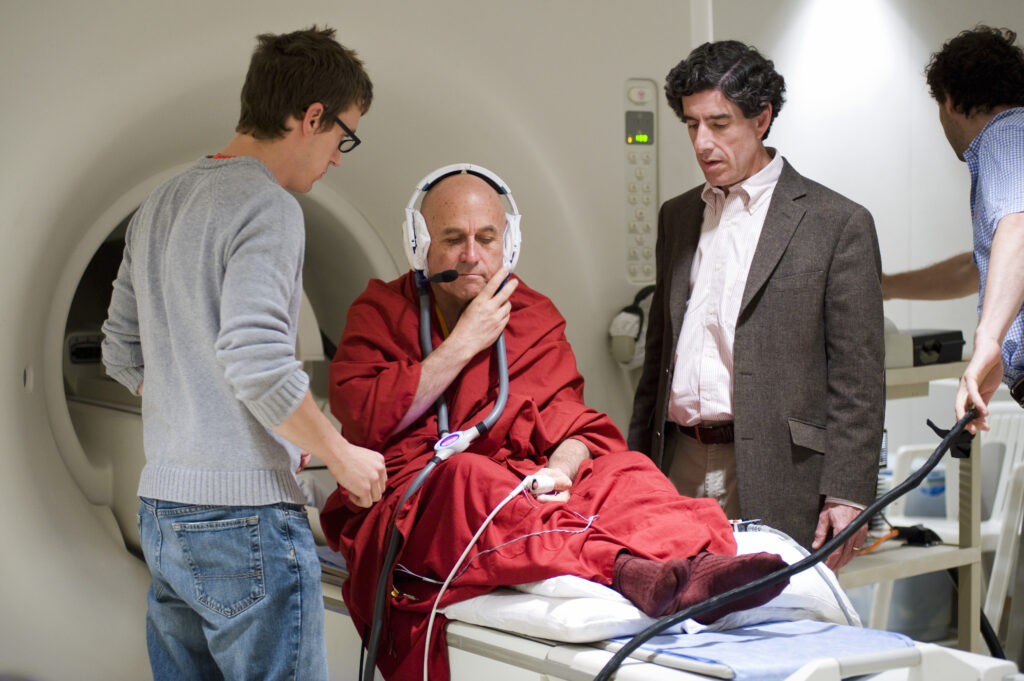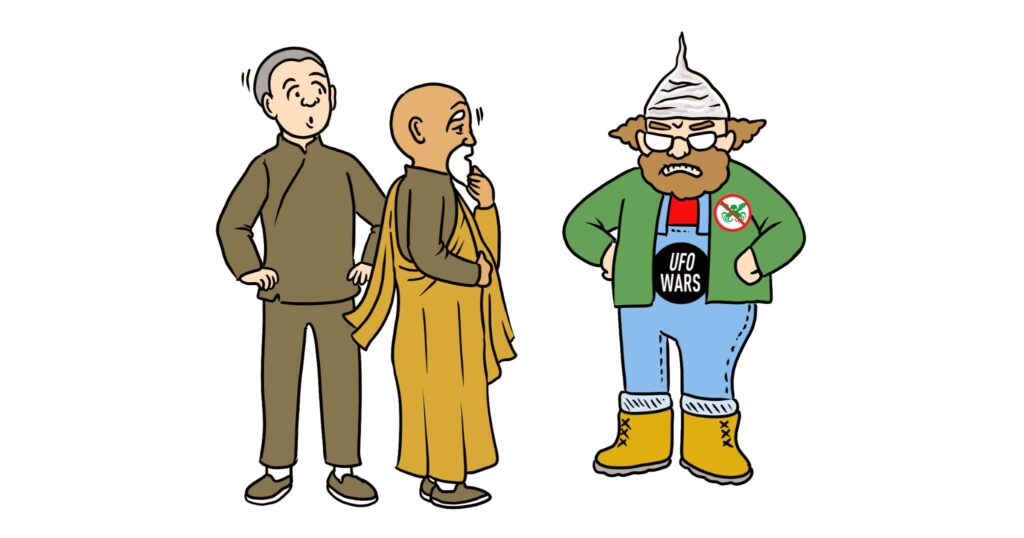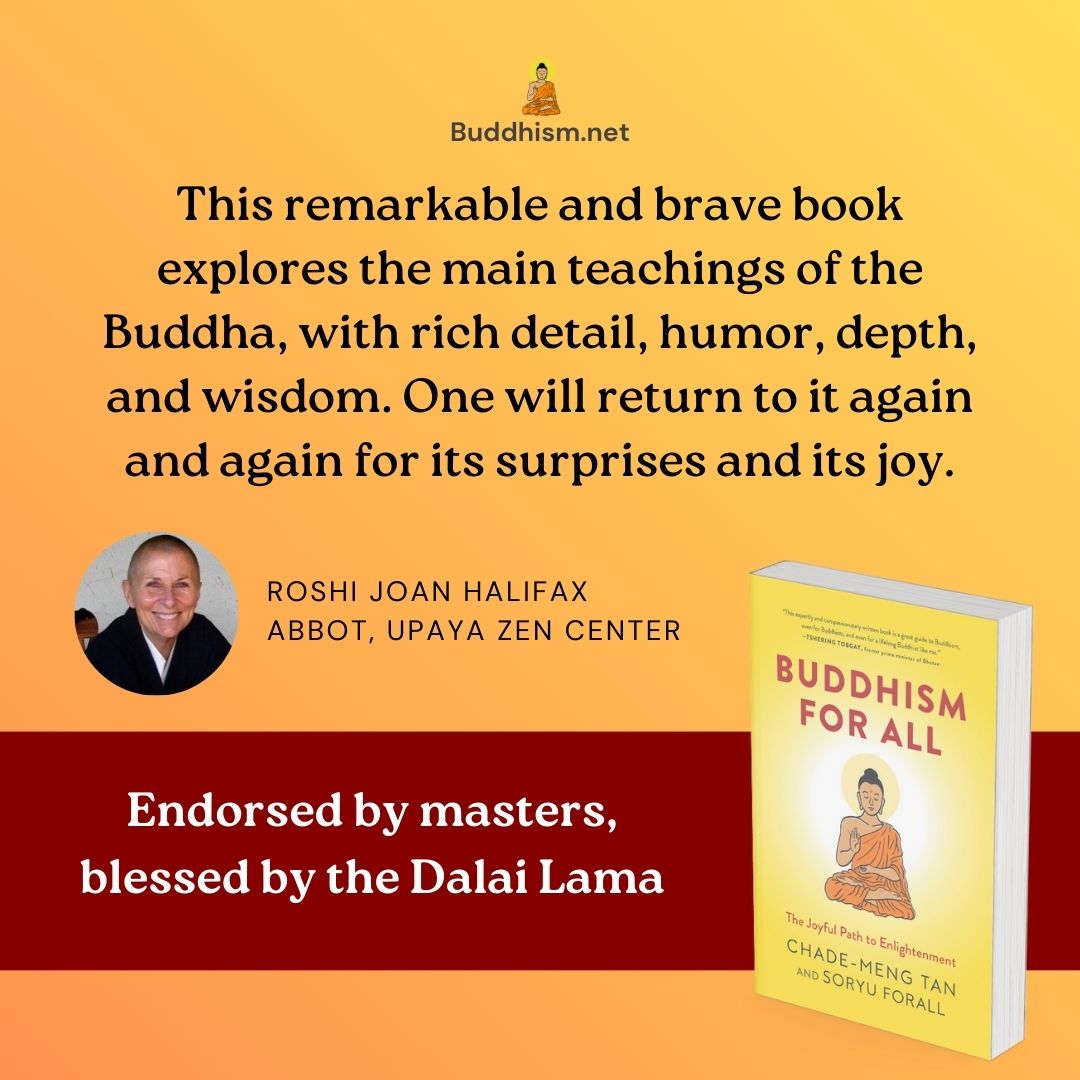
(Image by Jeff Miller from wisc.edu, source.)
The 14th Dalai Lama famously said,
If scientific analysis were conclusively to demonstrate certain claims in Buddhism to be false, then we must accept the findings of science and abandon those claims. [1]
My initial reaction to this was an unimpressed, “Duh, of course.” That may not surprise you, since I’m a skeptic and man of science. What may surprise you is the Buddhist community had no adverse reaction to what the Dalai Lama said. Nobody was offended. It should be shocking for one of the paramount leaders of one of the major religions in the world to pronounce that science takes precedence over his religion. I imagine if this were to happen in some other religion, it would likely cause a huge uproar, and many of its leaders and followers would be really upset. And yet, in Buddhism, such a statement feels like a non-event, almost taken for granted. The fact that it is so unremarkable is very remarkable.
That, my friends, is the first thing that fascinates me about Buddhism: its scientific spirit. The Dalai Lama even calls the core teachings of the Buddha the “Science of the Mind”.
Buddhism’s scientific spirit did not begin with the Dalai Lama, it started with the Buddha himself. The Buddha insisted that his students accept his teachings not on blind faith, but only after careful investigation. He beautifully describes his teachings as verifiable here and now. [2] This statement is astounding coming from any spiritual teacher because it makes the teacher very vulnerable. If you can prove a teacher’s words true or false only after you die, then you really have no way to prove your teacher wrong for the rest of your life. In contrast, if your teacher states that his teachings are verifiable here and now, you can always try to prove him wrong today, right this minute, and that makes him very vulnerable. It takes a spiritual teacher with a lot of confidence in the teachings to put himself in that position. In fact, the Buddha didn’t just say that, he repeatedly told his students to put him and his teachings to the test. [3]
Soryu had some amusing experiences in this regard. He practiced under classically-trained, no-nonsense Buddhist masters in Asia. Like any good student, he would nod when he listened to them, and that would invite a challenge. They would often tell him something like, “Don’t just believe this! Find out for yourself. I just taught you something and you nodded as if you understood, but have you confirmed it? If you haven’t tested it then you don’t know it. The only part of this training that matters is the part where you try to disprove Buddhism. So, get to work! By the time you come back to see me this evening, you should know for yourself if this is true.”
That really struck Soryu because he always considered himself a Western skeptic, but it turned out in terms of skepticism, he was just a padawan learner. Those old Asian guys put him to shame.

“Yes, friend, you really need to apply careful investigation.”
The true significance of this “verifiable here and now” attitude is even more striking: it moves the power in the teacher-student relationship from teacher to student. Imagine if you are a student of the Buddha, and he tells you if you do this, that will happen, and if you don’t do this, that will not happen, and he tells you it is verifiable here and now. If you then follow through and find out his prediction is wrong, you know he is wrong about at least one thing. He puts you, the student, at the center of everything. You are the one who has the right to discern if he is correct, not the other way round! That is a huge amount of self-empowerment for the student. That is why learning Buddhism can feel very empowering.
Activities
References
[1] The Dalai Lama, The Universe in a Single Atom. Harmony (2006).
[2] Majjhima Nikāya 7. The exact words are: “visible here and now, immediately effective, inviting inspection, relevant, the wise can experience it for themselves.”
[3] We will talk about this in detail in a future article in this series.
Artwork by Colin Goh

